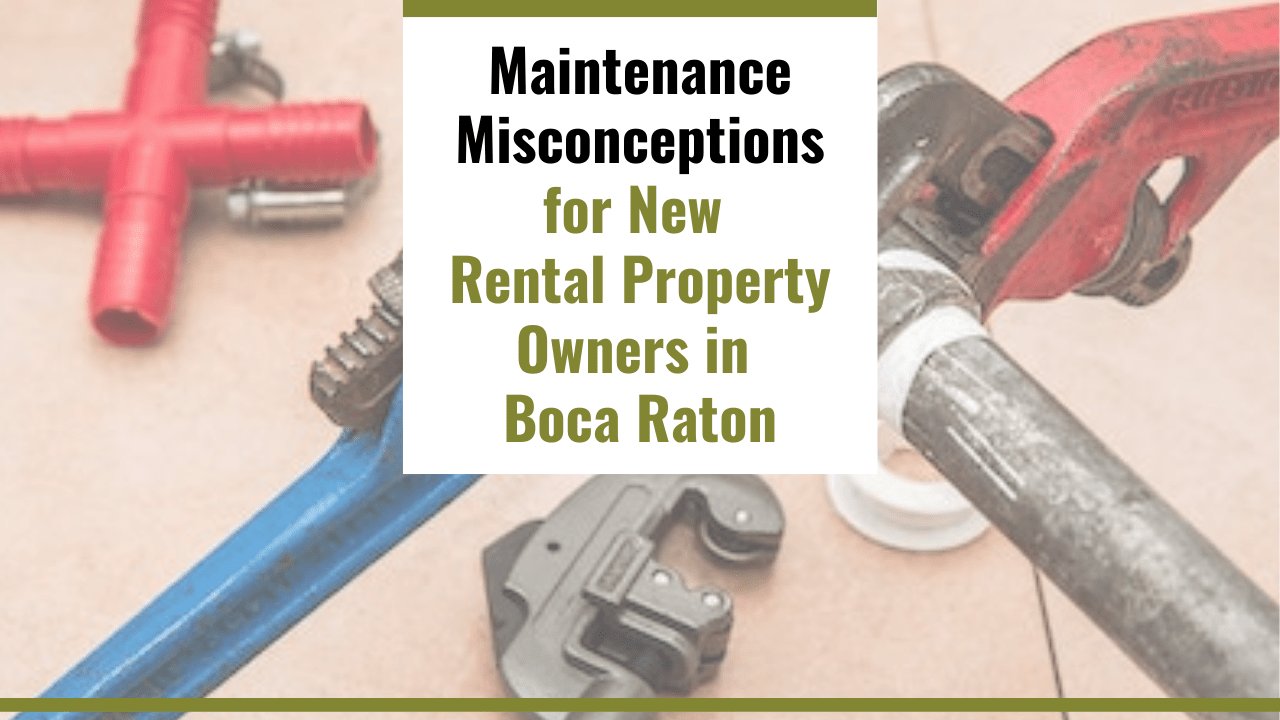Making mistakes with your Boca Raton rental property is surprisingly easy, even for experienced landlords and investors. If you’re renting out a home for the first time, you’ll need to make sure that both you and your residents understand each party’s responsibilities and expectations, especially when it comes to maintaining the home.
There are a few common maintenance misconceptions that we run into with new rental property owners in Boca Raton, and we want to cover those today so you don’t make an unintentional (and often expensive) mistake with maintenance and repairs.
The Tenants Are Living in the Home, so They Must Maintain ItThis is probably the most common misconception. A lot of owners think that once they provide a property that’s in good condition, it’s up to the tenants to keep it that way.
While it’s reasonable to expect your residents to keep the home clean and to change air filters and light bulbs, anything that needs to be repaired or replaced will likely be your responsibility. If an appliance stops working or the toilet doesn’t flush or the air conditioning breaks down during a hot Florida summer, it’s going to be your repair to handle and pay for.
We recommend having a maintenance budget so you can pay for these repairs as they come up. While tenants are responsible for any damage they cause, the property owner is responsible for keeping the home habitable, safe, and maintained. You’ll be expected to keep everything working and reliable.
Cheap Maintenance Vendors Save Owners MoneyCheaper is not always better, and you don’t want to fall into the misconception that any handyman can fix any problem. Sometimes, they can. A simple garbage disposal reset can probably be done by anyone. However, when there’s a repair that involves plumbing, roofing, electricity, or the HVAC unit, you want to make sure you’re working with a licensed and insured professional.
If you haphazardly hire someone off Craigslist to come over and make a repair because the rates were cheap, you only increase your risk. You’ll probably not get the best work product, either. Don’t cut costs when it comes to maintaining your investment property.
Work with vendors and contractors who are professional and reputable. Otherwise, you’ll waste money making the same repair over and over again. Your tenants will get frustrated and the condition of your property will deteriorate.
Tenants Aren’t Complaining, So Everything Must be Fine














